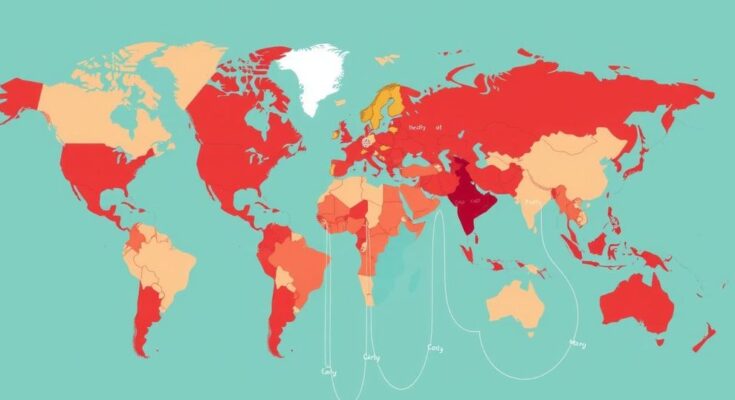Recent reports reveal widespread food poisoning incidents in Cambodia, India, Brazil, Nigeria, and the United States, indicating serious food safety concerns. Notable outbreaks were linked to catered sandwiches in Cambodia, contaminated shawarma in India, and a tragic fish consumption case in Brazil. These events raise critical awareness about the state of food safety regulations globally and the need for improved practices.
In recent global food poisoning incidents, alarming reports have surfaced from Cambodia, India, Brazil, Nigeria, and the United States, indicating a serious public health concern. In Cambodia, a food poisoning outbreak at a city hall meeting resulted in widespread illness among attendees, attributed to contaminated sandwiches. Concurrently in India, multiple cases at food vendors, including a troubling incident involving an army camp, raised demands for investigations and improved food safety protocols.
Brazil faced a heartbreaking incident during New Year celebrations, with a tragic loss of life linked to fish consumption, while Nigeria’s police investigation into a wedding reception food poisoning highlighted severe implications for community health. Meanwhile, the U.S. has seen fallout from a mass poisoning incident impacting flight attendants, juxtaposed with a college basketball player overcoming illness to contribute significantly to her team’s victory. It is evident that food safety remains a critical issue worldwide, compelling authorities to enhance monitoring and enforcement of safety standards.
Food poisoning remains a persistent threat worldwide, signified by numerous recent incidents sparking public and governmental concern. The contaminated food sources often involve improper food handling practices, highlighting a need for stricter regulation and compliance with hygiene standards. As illustrated through various cases in different countries, including bacterial contamination in Cambodia and food safety failures in India, the multi-faceted nature of foodborne illness necessitates ongoing vigilance in food service and preparation sectors globally.
The alarming frequency of food poisoning incidents across various countries underscores an urgent need for improved food safety measures and regulations. Prompt actions in response to outbreaks, like the investigations initiated in India and Nigeria, emphasize the necessity of governmental oversight in food quality. Additionally, concerted efforts toward public education on safe food handling practices can help mitigate future risks of foodborne illnesses. Each incident highlights the shared responsibility of food vendors, authorities, and consumers in ensuring public health and safety.
Original Source: www.foodpoisoningnews.com




